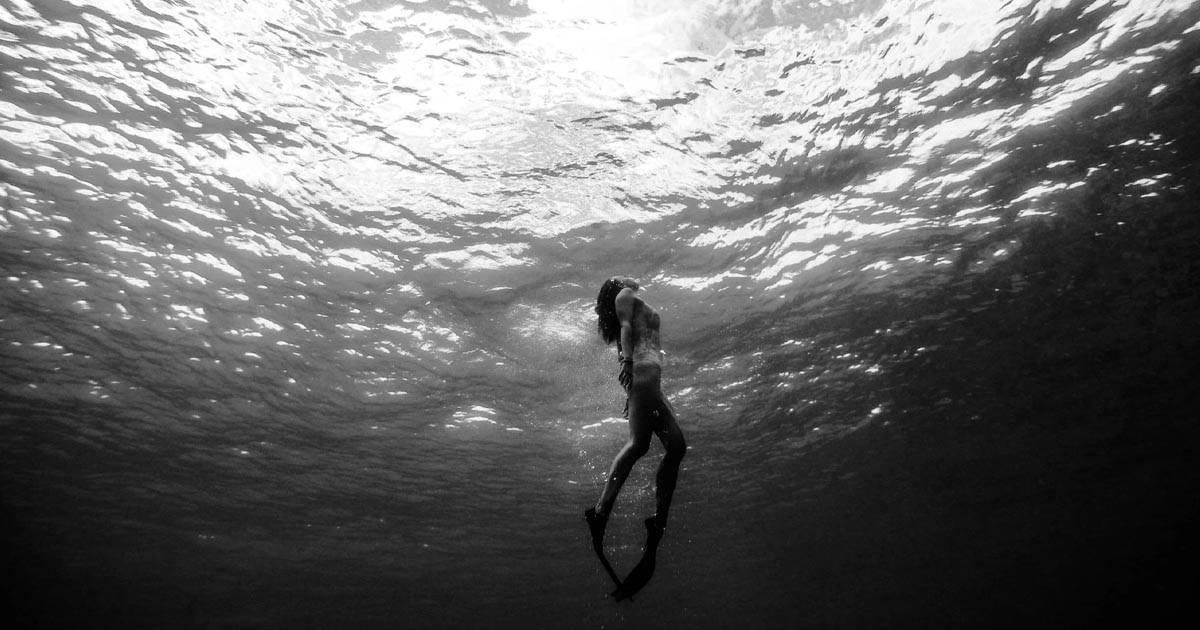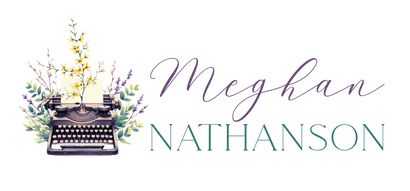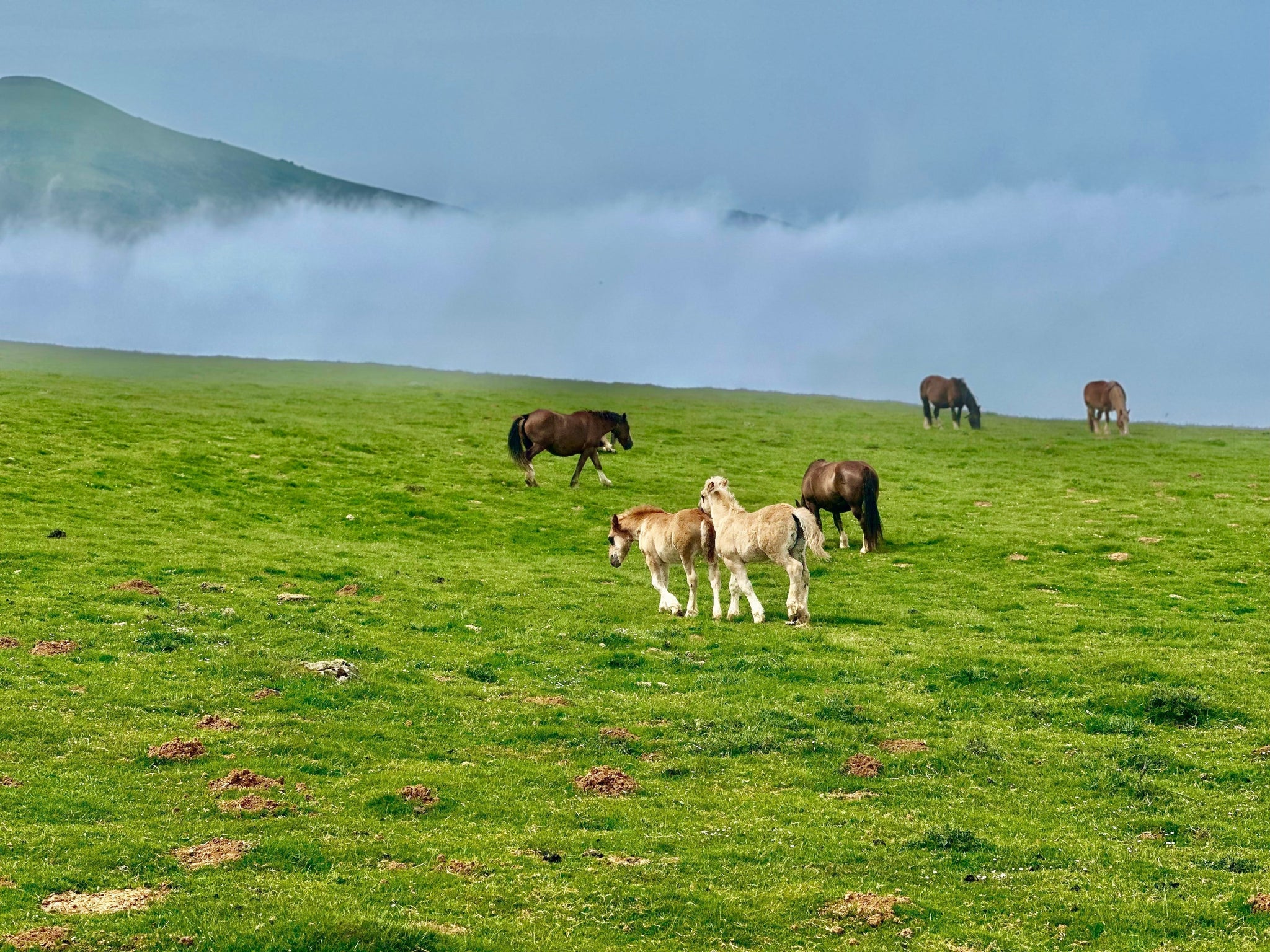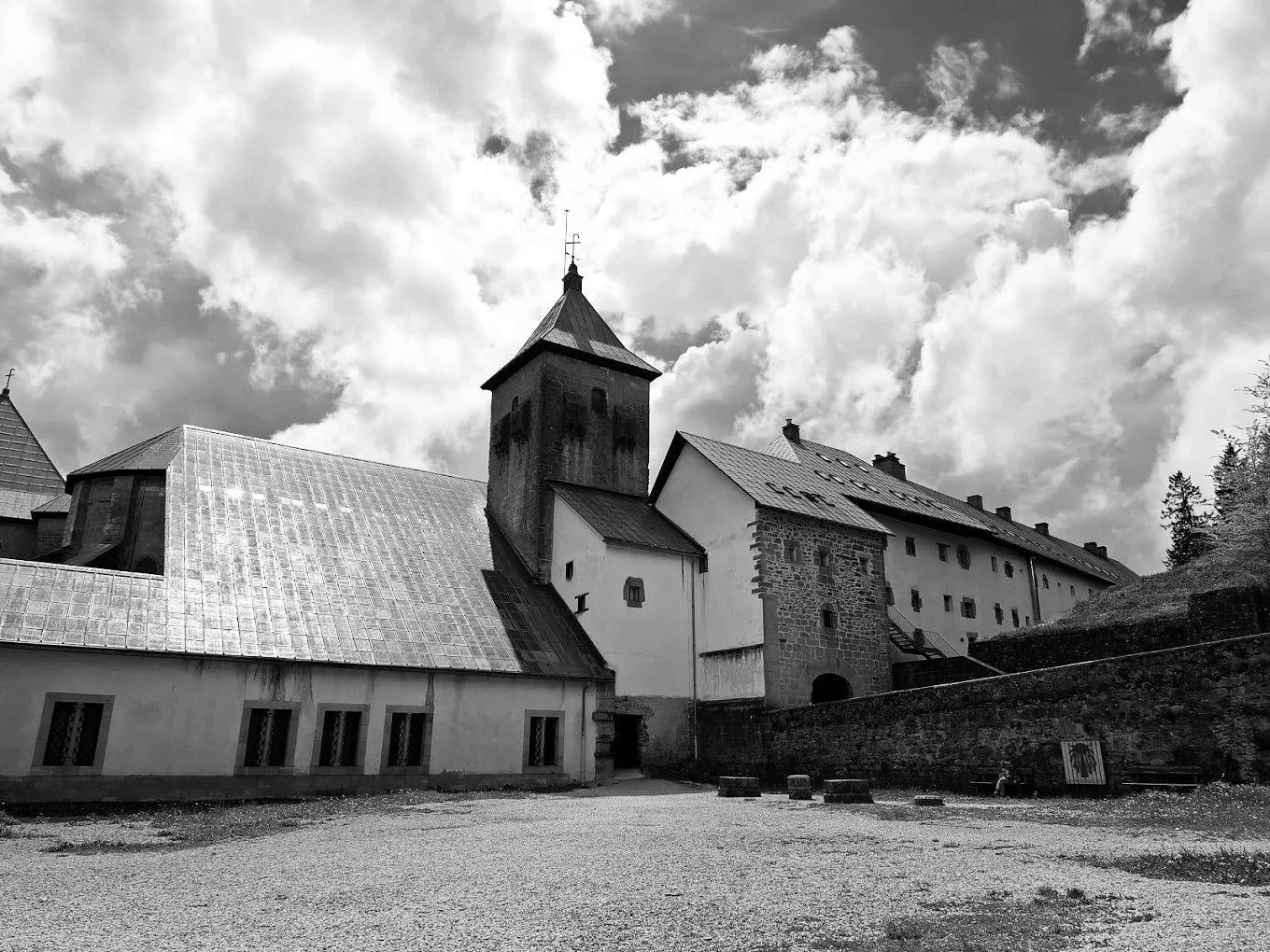“There is love enough in this world for everybody, if people will just look.” — Kurt Vonnegut

Meet the BRCA1 gene in her 1950’s, chartreuse housedress. She adjusts her eye glasses on either side, like a prim librarian. She seems smug and maybe a little intrusive as she moves through my social media feed, intent on reprimanding any loud or loitering patrons. She might, very well, find a few of those among my friends. The BRC2 character seems more jovial, dressed in sky blue and pictured only from the waist-up—as if her expressive face holds more weight than the rest of her. She wears a striped tie around her neck, a seeming flight attendant directing attention to the card tucked in the seat in front of you.
It’s hard to know whether it was my spinning head or the idea of someone personifying cancer genes (as advertising strategy) that creates my aversion toward all things technological. Lying in my bed, wrapped in sweaty sheets—the summer sun streaming in—I imagine a time when the ubiquity of smart-phones and all that accompany them becomes obsolete.
Across the globe, as if choreographed in a dance, all of humanity will raise their heads in unison. Billions of hearts will swell at the depth and breadth of what has been missed. An expanse of electromagnetic energy will fall away and sink down into the earth where we are free of it, even as our breath recovers its rhythm with the rise and fall of the tides.
I lay my head down on the reclaimed-wood, dining room table.
A decade ago, when we discovered this handcrafted piece was created from the remains of an old boathouse from our new town, we made what felt like an exorbitant purchase. The sales woman reached her hand into her pocket and threw a set of keys on the table top to demonstrate its ability to withstand scratching. This seemingly decorative piece has been the epicenter of our home ever since. We’ve shared countless pots of soup here and wrestled with weighty decisions well into the night. I’ve begged my children to use their manners between these four, sturdy legs. We’ve expressed gratitude before eating, all while Jonah and Adrian sneak spaghetti noodles, their heads tossed back, grinning like Cheshire cats. For one long stretch, Adrian seemed capable only of sitting on top of the table instead of on the bench that accompanies it. We’ve shared this table with games and crafts and puzzles that have at times come very close to inching us out completely.
My friend leaves me there and rushes home. I imagine her driving along steep and winding roads at a fast clip, intent on relieving my suffering. She returns with a tall, orange container filled with pills wrapped in silver packaging. I separate a couple capsules at the perforated edges and think about how despite our shared place in the same ditch, here she is shoveling me out. Later, the on-call doctor encourages me to take her medicine, and I marvel at the malleability of rules when compassion and desperation are at play.
In the morning when the ground is damp and while my husband still sleeps, I rise slowly out of bed, collecting my pillow as I walk to our balcony door. Outside, my bare feet get wet on the wooden surface. I hold my pillow over the side of the railing and carefully dust-off the large collection of hairs that have fallen in the night. Remembering my mother—brushing our childhood dog and releasing blond fur into the air—I imagine what she used to suggest, that birds might build a nest with my hair.
At first, the strands are long. Eventually, as if going on a date, my husband and I drive to a barber shop in a neighboring town. I explain my situation and tears come springing to my eyes as I describe the sudden urgency I feel. The owner of the shop envelops me in a hug, skips me ahead in the line and walks me straight over to a chair. I collect my emotions as a stylist with rainbow-dyed hair and a pregnant belly turns me away from the mirror and begins removing what has become a burden.
In the end they insist no charge, and we all wipe at our damp eyes. In a world replete with division, real-life, human connection evokes a deepened sense of what is means to see and to be seen—a reminder that all of us exist with some struggle or another.
These moments are arresting to my sense of self and they mean something. To stroll around with your current-life-challenges so readily available for others to witness evokes immense vulnerability. To navigate a road back to health in a world brimming with information—yet absent of absolutes—is humbling.
When so much is at stake, who do you listen to?
At home, I joke with Jonah and Adrian about my resemblance to G.I. Jane. I’m not sure they understand the reference, but they assure me that in their eyes, my beauty remains intact. My buzz-cut eases them into a time when even those littler hairs will fall away and Adrian’s eyes will grow wide and dilate when I take off my hat in the evening and he looks intently at my ivory scalp. In the mornings, I dust off those little hairs on the balcony, too. I dry my feet on the thick, powder-blue rug beside the bed, hoping not to cause a stain.
When my fever sneaks up to the place where even the doctors are rattled, I surrender my children to sleep under the stars with friends. Their care is (perhaps, for the very first time) beyond my capability. I’ve lost what seems like all authority over my own well-being (much less theirs) and have been told I must go to a place brimming with germs.
It is unimaginable to me that I can leave my bed, much less our home.
They keep us in a pediatric room in the ER overnight with a glass door painted with storybook characters. Winnie-the-Pooh or Eeeyore were there, or maybe those were painted on the doors across the hall.
A few days later, in my room on the 5thfloor, there is a knock at the door. I am out of bed and sitting by a window across the room. The large frame of glass allows swaths of light to come pouring in and provides a long view of an old, red-brick tower. The expanse of sky is as good a medicine as the fluids dripping through my veins.
The man at the door is dressed like a professor with an unexpected, colorful tie hinting at something more. Somewhere in my paperwork I am listed as a Catholic and the visitor has come from the Catholic Diocese of Portland, Maine to offer his support. In a gentle voice he explains how for twenty years he was a lapsed Catholic, returned to the church through service work. With eyes that hint at both humor and pain, he assures me that my current, religious status is irrelevant to his visit.
There is space in the way he is speaking to me, in the way he is listening. He allows room for my experience, whatever it might be.
It is rare for me to accept this sort of offering. So often, I choose to serve as my own council. I turn inward, not in collapse, but toward an expansive world I count on for guidance and support. I turn to those who have gone before me, sinking my hand into the soft palm of my Grandfather who called me Meghan Baby and taught me to Waltz. I whisper a request for help to my Aunt Peggy who wrote You be You in a card to me when I was ten.
Maybe I reached a point in which I needed more than I’ve needed before. Maybe it was the unique nature of the space we inhabited. Or, maybe he was someone special. Whatever the reason, I began sharing with him about what it feels like to listen to the hollow sound of a basketball rebounding on pavement outside my window as I lay in bed on another beautiful, summer’s day. I relay the painful story I have been telling myself about Jonah bouncing a ball, outside alone, in juxtaposition with our endless beach days shared in summers past.
Along with my story of surrender, I release a slew of tears. His objectivity is enhanced by the absence of knowing me. I could be any mother. I could be any woman. He expresses his belief that my experience is an opportunity for Jonah and Adrian to deepen their capacity for compassion. I tell him how much I have not wanted them to worry and he insists there is good to be found in their service of me.
On one of the darker of the sunny days, when discomfort had become like second skin, I remember contemplating the nature of suffering as a means of coping. I thought about the people—the children, especially—within this vast world who are trapped in experiences of relentless anguish. Their lives inextricably linked at birth with poverty, violence and inequity with no viable escape and no end in sight. I felt fortunate when considering the differences between our fates as well as sorrow for the injustice that allows anyone to be left to a life of pain.
Witnessing suffering can leave us feeling powerless—as if our efforts to make an impact are only tiny drops of water in an enormous bucket in need of filling.
My sister asked, where are the greater forces of good in all of this? She followed up with her hope—one that I share. The power greater than us reveals itself in the way it moves through us. It is present in us, as individuals, in the way we decide to engage the world. It is the witnesses who travels to the border and reports back. It is the zucchini and lentils brought by the angel friend up North—her most nourishing of foods. The healer who shows you how to open up your heart, just a little more.
It is you and me getting to choose on any, single day who we want to be.
In the last few weeks I’ve rediscovered my equilibrium and found my footing again. I’ve awakened early and walked outside in bare feet through damp grass to cut kale from my garden. I’ve bundled up in a yellow, rain jacket and traipsed through the woods with my friend. We compare notes about our skepticism that we might need to succumb to a supposed new and lesser normal. I assure us both—we do not have to subscribe to this notion.
Jonah and Adrian have gone back to a school where most children spent the summer at nourishing camps and exploring our gorgeous state. Instead of running back to my work I have been obsessing about food—pea shoots and arugula and home-grown tomatoes that thrived despite the plentiful weeds surrounding them. It seems as if I’ve returned from a difficult dive into the dark and murky depths of the ocean’s floor and I am rising once again to the surface, where oxygen is plentiful and my heart is ready to live.
Subscribe to my mailing list!
Leave a comment (all fields required)
Comments will be approved before showing up.


